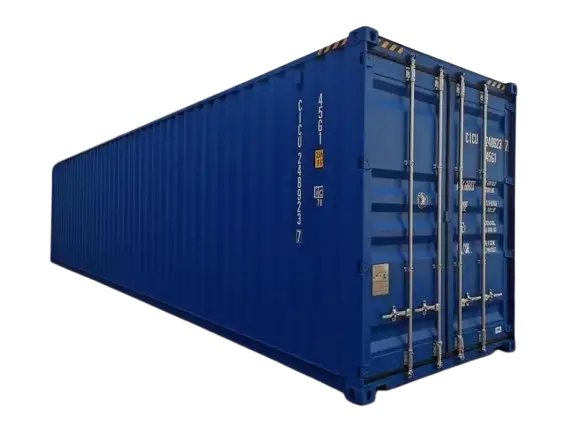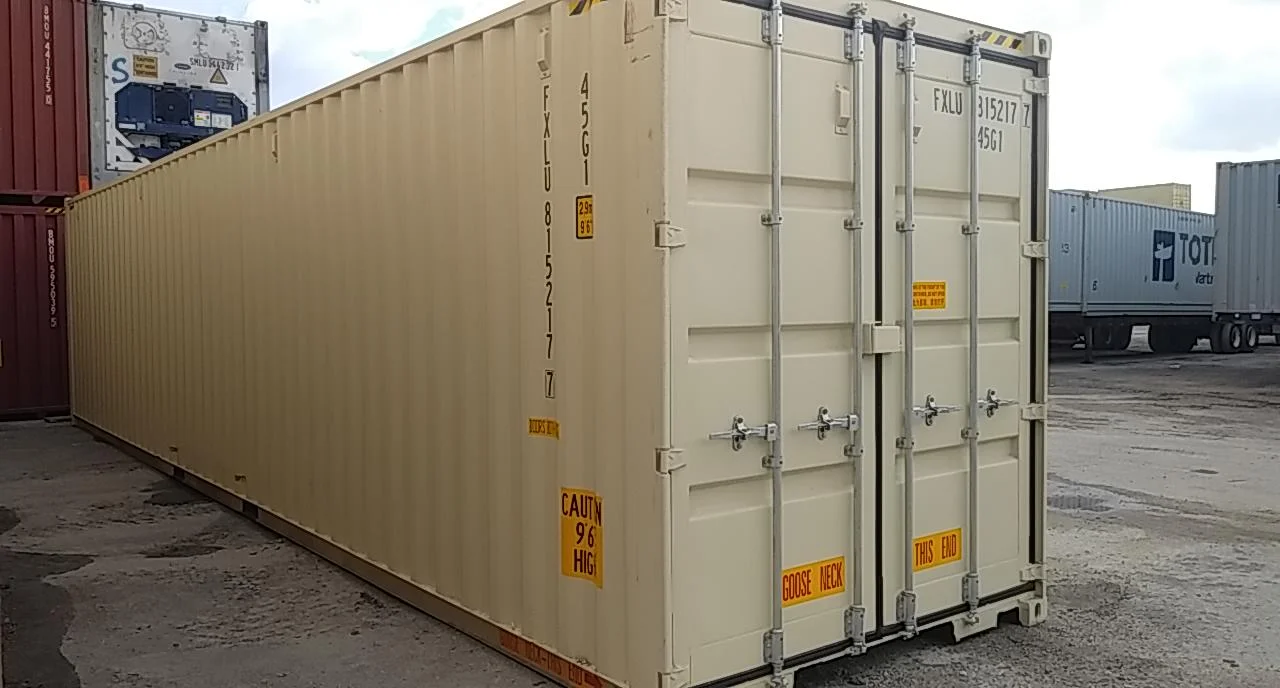The Ultimate Overview to Picking the Right Shipping Container for Your Needs
When it pertains to choosing the right shipping container, comprehending your specific needs is essential. You'll desire to take into consideration elements like dimension, type, and product to assure you make the best choice. From common dimensions to specialized alternatives, there's a lot to explore. Plus, budgeting for both the container and any type of adjustments can make a huge distinction. Allow's damage down the crucial facets to aid you locate the perfect suitable for your requirements.
Understanding Shipping Container Sizes
When you're selecting a shipping container, comprehending the different sizes offered is vital for making the appropriate choice. Delivering containers commonly can be found in standard sizes of 20 and 40 feet, yet you'll also find other dimensions. Understanding the size you need depends upon what you prepare to shop or transport.If you're relocating smaller items, a 20-foot container may be perfect, while larger deliveries usually call for a 40-foot container. Remember that the height can also differ; high dice containers provide additional upright area, which can be helpful for taller goods - New Shipping Container 40' x 8' x 9’6".Before deciding, gauge your cargo, and take into consideration exactly how much space you'll require for packing and unloading. Always consider prospective future needs-- going with a slightly bigger container might save you hassle down the line. Eventually, choosing the ideal size will boost effectiveness and assure your items are secure during transportation
Types of Delivery Containers Available
There are numerous kinds of delivery containers readily available, each developed for details purposes and cargo demands. The conventional completely dry container is versatile, excellent for basic cargo. If you're shipping subject to spoiling goods, think about a chilled container, which maintains a controlled temperature level. For oversized items, high cube containers supply extra height, fitting taller loads.If you require to move heavy machinery or devices, level shelf containers provide a strong base without wall surfaces. Open-top containers permit for easy loading of tall freight, with a removable tarp covering for protection. If you're seeking flexibility, consider a retractable container that can be conveniently stored when not in use.Lastly, specialized containers like tank containers are used for liquids, while vented containers are developed for bulk cargo that needs ventilation. Recognizing your cargo type will help you pick the ideal container to satisfy your shipping requires efficiently.
Product Considerations for Toughness
When selecting a shipping container, the material plays an important role in its toughness. You'll desire to consider the advantages of steel versus aluminum, especially pertaining to deterioration resistance. Comprehending these elements can help you make a more enlightened option for your shipping needs.
Steel vs. Light weight aluminum Containers
Exactly how do you select between steel and light weight aluminum containers for your shipping needs? Beginning by thinking about sturdiness. Steel containers are robust and deal exceptional strength, making them excellent for hefty loads and harsh problems. They withstand damage from impacts and are usually more economical, which can be a major variable for budget-conscious buyers.On the various other hand, light weight aluminum containers are light-weight, which can save you on delivery costs. They're less complicated to navigate and are a fantastic selection if you need to transport items frequently. Nonetheless, aluminum is usually much more pricey and less durable than steel. Consider your particular demands thoroughly, consisting of weight, expense, and the kind of cargo you'll be shipping, to make the ideal selection for your circumstance.
Deterioration Resistance Elements
Picking the best product doesn't simply involve weight and expense; deterioration resistance plays a substantial function in durability. When picking a delivery container, think about the environment it'll deal with. Steel containers, while solid, can corrosion otherwise effectively dealt with. Search for choices with protective layers or galvanization to enhance their life expectancy. Light weight aluminum, on the various other hand, uses natural corrosion resistance, making it suitable for seaside locations or moist problems. It can be a lot more pricey. In addition, analyze the container's usage-- if it'll be exposed to chemicals or severe weather condition, prioritize materials that can hold up against these conditions. Buying a corrosion-resistant container currently can conserve you from costly repairs or replacements down the line. Select sensibly for long-lasting advantages.
Alterations and Modification Options
Shipping containers aren't just for transporting items; they can be transformed to satisfy your specific requirements through different alterations and personalization choices. You can convert a typical container right into a comfortable office, a short-lived retail store, or perhaps an individual fitness center. The possibilities are almost endless.Think concerning adding home windows, insulation, or ventilation to boost comfort. You could also take into consideration electrical circuitry, plumbing, or perhaps customized shelving to enhance capability. If safety's a concern, enhanced locks can provide tranquility of mind.For aesthetic allure, you can paint the container or include a distinct layout to make it stand apart. Do not forget flooring alternatives-- whether you want long lasting plywood or something extra advanced, it can raise the space.Ultimately, customizing your delivery container to suit your demands can boost functionality and create an one-of-a-kind atmosphere that mirrors your style.
Examining Your Transportation Needs
When it comes Buy New Shipping Container 40' x 8' x 9’6" to using your changed shipping container, recognizing your transport needs is essential. Beginning by establishing what you'll be shipping-- whether it's heavy devices, retail items, or personal products. Each sort of freight has various requirements relating to dimension, weight, and accessibility.Next, consider the distance and mode of transport. Are you shipping in your area, across the country, or internationally? This impacts the container's style and functionality. If you're making use of vehicles, assure your container fits basic measurements for very easy loading and unloading.Additionally, think of transportation problems. Will your things need special protection from weather condition or temperature level fluctuations? If so, you may require insulation or ventilation functions in your container.Lastly, assess exactly how typically you'll be moving goods. Regular deliveries may require a much more sturdy and versatile container to fulfill ongoing demands. By attending to these factors, you'll be well-prepared to select the best shipping container for your requirements.
Budgeting for Your Delivery Container
Establishing a budget for your shipping container is crucial for guaranteeing a smooth getting process. First, determine just how much you can pay for to spend. Rates can differ substantially based on dimension, problem, and kind. New containers typically set you back extra, yet used ones can provide considerable savings.Next, take into consideration any kind of additional prices you could sustain, such as transport charges, delivery costs, and alterations. If you plan to tailor the container, consider those costs too. Research study different distributors to compare rates and discover the most effective offer that meets your needs.Don' t neglect to include any authorizations or guidelines that might put on your acquisition and use of the container. By plainly outlining your budget plan, you'll be better prepared to make educated choices, ensuring you obtain the best container without damaging the bank.
Upkeep and Care for Durability
To assure your shipping container lasts for several years, regular upkeep is vital. Start by evaluating the exterior for corrosion, damages, and damage. If you identify any kind of issues, resolve them instantly to stop additional damage. Clean the container occasionally, both in and out, to remove dirt, particles, and moisture that can bring about corrosion.Ensure the doors secure properly and lube the joints to avoid rust and sticking. If you're utilizing the container for storage, take into consideration adding air flow to lower humidity and mold and mildew development. For extra security, apply a rust-inhibiting paint or sealant annually.If your container's situated in an extreme atmosphere, like seaside locations, you may need to enhance maintenance frequency. Maintain an eye on the floor covering, also; any kind of signs of wear ought to be repaired right away. With these easy actions, you'll expand the life of your shipping container considerably.
Regularly Asked Questions
Exactly how Do I Find a Trustworthy Delivery Container Distributor?
To locate a reliable delivery container distributor, beginning by looking into on the internet evaluations, requesting suggestions from buddies or industry contacts, and contrasting costs. Always check their qualifications and warranty they offer top quality containers that fulfill your requirements.

Can I Rental Fee a Shipping Container Instead of Acquiring?
Yes, you can most definitely lease a shipping container rather of getting one. Numerous suppliers supply rental choices, which can save you cash and supply flexibility if you just require it for a short duration.
What Permits Are Needed for Container Positioning?

Are Delivery Containers Weatherproof and Appropriate for Outdoor Storage?
Yes, shipping containers are typically weatherproof, developed to endure severe conditions. Their robust construction keeps your items secure and dry, making them suitable for exterior storage space. Simply ensure appropriate ventilation to avoid wetness build-up inside.
Exactly how Do I Carry a Shipping Container When Acquired?
